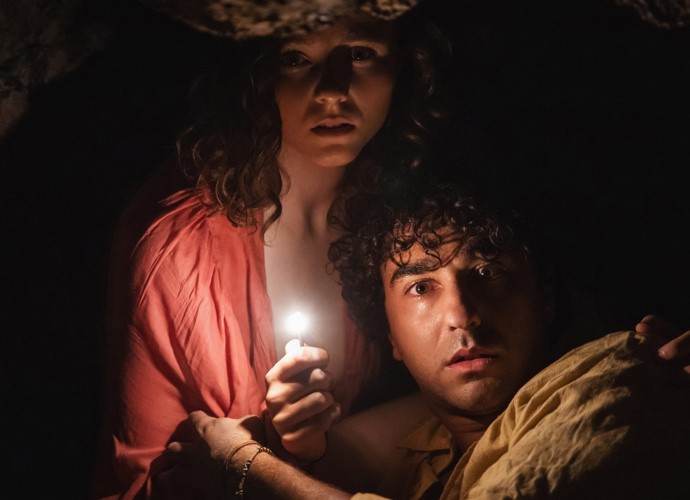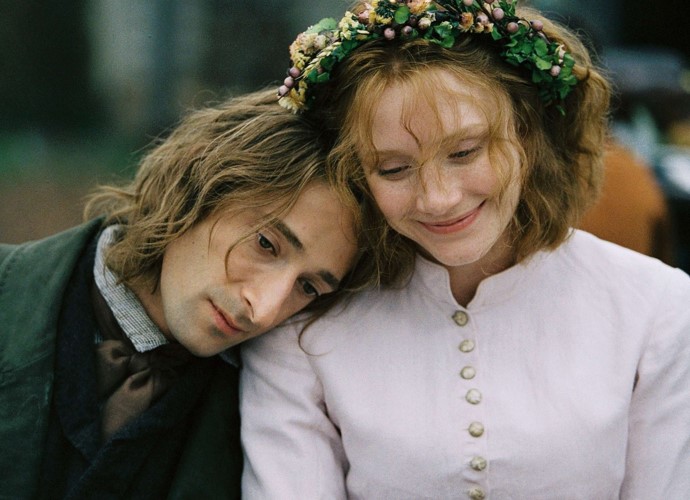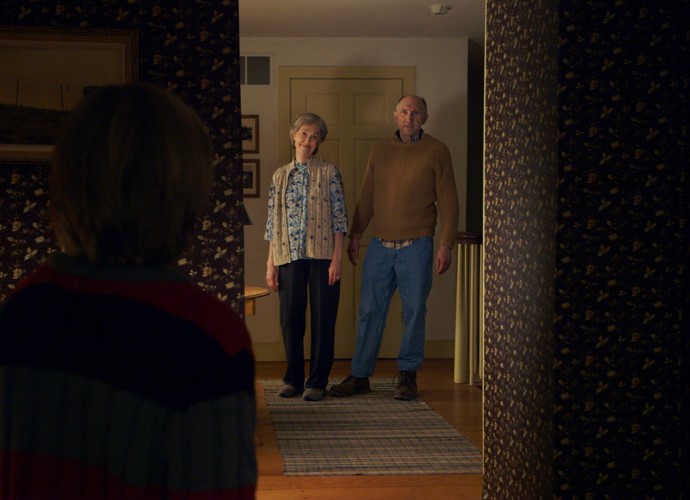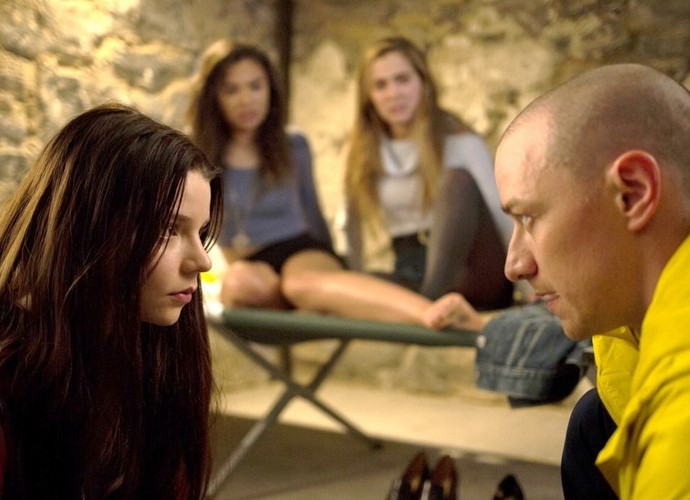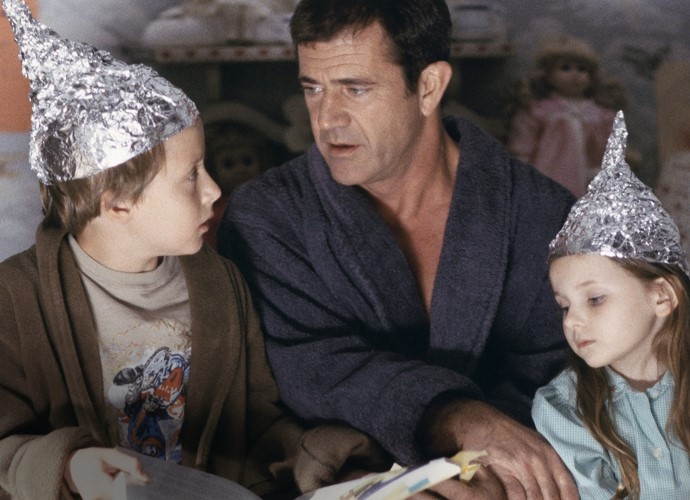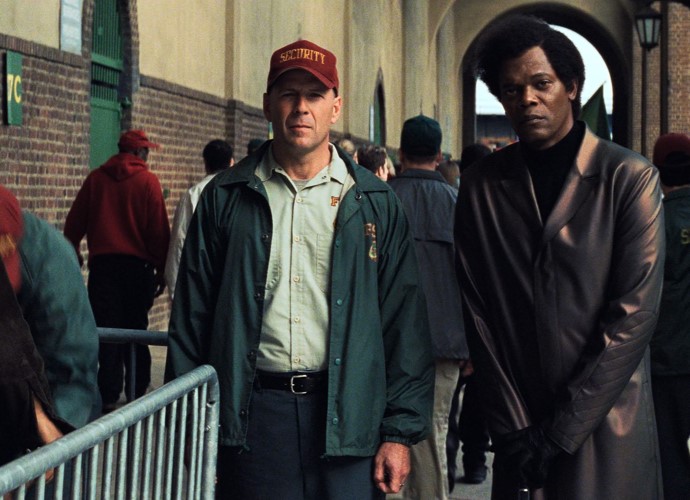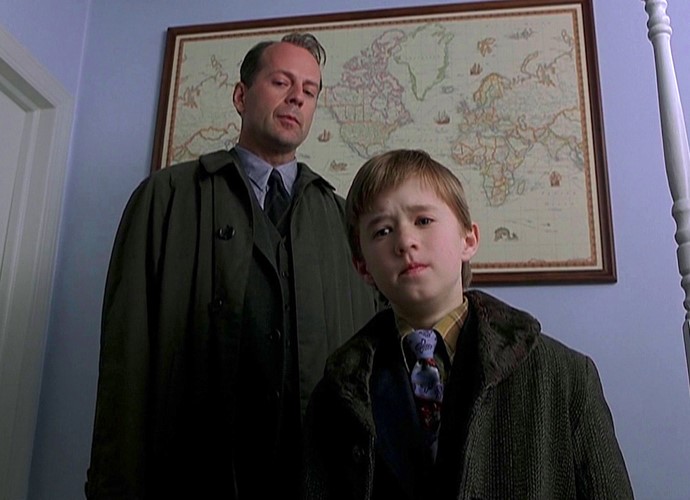John Carpenter, for example, devoted his filmmaking career to horrors about unknown threats. George A. Romero loves zombie movies. Wes Craven built his filmography on slasher flicks and meta movies that critique the very genre he pioneered. But there’s one horror movie director who raised the bar with a culture-shattering plot twist, which turned into a frequent technique that gained him notoriety in the film community. That person is, of course, M. Night Shyamalan. Today, it’s easy to dismiss to Shyamalan as a nuisance. Anyone can see through his illogical scripts, unrealistic dialogue, odd characters, and over-reliance on plot twists as a crutch. But give credit where credit is due: the director is great when it comes to horror stories with supernatural elements and suspense-laden concepts. Here are the best M. Night Shyamalan movies of all time.
7. Old (2021)
We start off with a polarizing horror movie that still has its merits. Based on a Swiss graphic novel called Sandcastle, Old centers on a family and their companions who visit a secluded beach. However, once on the beach, they find themselves aging much faster than normal—leading to fatal outcomes. The concept of rapid aging is executed with merciless results. Right from the start, with the tease of a female corpse floating down to the deterioration of her body, it’s disturbing to behold. Old has a killer premise. And, to his credit, Shyamalan is able to play on its horrifying possibilities. But premise isn’t everything, especially up against a contrived script and stilted dialogue.
6. The Village (2004)
The Village is a period horror set in a 19th century Pennsylvania village, following the journey of young girl named Ivy who discovers a horrifying truth about her village and the creatures they only know as “Those of Whom We Do Not Speak.” The film starts off promising and the Puritan-inspired setting is creepy. With the village’s folklore and the creed they abide by, it all points to an unknown threat. And the all-star cast is tremendous, from Bryce Dallas Howard to the late William Hurt. However, when it gets to the twist, you either accept it or hate it. Many criticize this as Shyamalan’s lowest point, with an ending that weakens the great moments that led up to it.
5. The Visit (2015)
The Visit was a return to form for Shyamalan, this time as a low-budget found-footage horror film about siblings Becca and Tyler, whose mother has tracked down their grandparents. The grandparents invite the siblings to spend a week at their farmhouse. However, the siblings discover a horrifying secret about their grandparents during their stay. Up to this point, Shyamalan’s films have either gone straight to the scares or blended horror with humor (intentional or not). The Visit is a mixture of all, bouncing between moments that are goofy and scenes that are genuinely frightening. “Nana” and “Pop Pop” are unnerving enough in their odd behavior. Yet, when it comes to the twist, things get truly terrifying. In The Visit, Shyamalan succeeds in balancing horror with humor.
4. Split (2016)
Split is a psychological horror film about a man named Kevin Wendell Crumb who abducts three teenage girls and takes them to an underground lair. The girls discover that their captor suffers with multiple personalities, and those personalities are all fearful of a 24th personality called “The Beast.” Obviously, the girls need to escape before The Beast comes. Split ended up being way better than anyone expected, taking the best traits of Shyamalan and updating them with a refreshing spin. Every scene is thick with psychological tension, and Shyamalan proves he can scare with a smaller budget. As Kevin, James McAvoy gives a career-defining performance as he jumps from one personality to another with ease, convincingly portraying each identity as a wholly separate character.
3. Signs (2002)
Back in the early 2000s, people saw Shyamalan as an auteur with incredible potential—even on the same tier as Steven Spielberg. Signs played into that with Shyamalan’s own Spielbergian sci-fi film. Signs follows former priest Graham (Mel Gibson), who one day finds several mysterious crop circles in his corn field. Realizing that extraterrestrial life might be lurking around, Graham goes through an existential crisis that affects his entire family. One thing Shyamalan does really well in Signs is drive up the dramatic stakes by exploiting our fear of the unknown. That same fear wears down Graham’s faith and his resilience as a father, leading to all kinds of conflict between him and his family. Despite an illogical plot twist and shallow dialogue, Signs works as part-drama, part-sci-fi about humanity’s frightening frailty.
2. Unbreakable (2000)
Unbreakable flew under the radar at release, but has since been re-evaluated as a timeless classic. It’s a dark and grounded superhero film unlike any other superhero film to this day. Unbreakable centers on security guard David Dunn (Bruce Willis), who miraculously survives a train crash with no injuries. Seeking answers, he winds up meeting with comic book curator Elijah Price (Samuel L. Jackson) and falling down a superhuman rabbit hole. Back when this film released, superhero movies were generally looked down on by the public, especially ones that were edgy. Unbreakable was ahead of its time, and we owe it a debt for deconstructing the genre and blazing a trail for realistic superhero films. Shyamalan brilliantly executed a gratifying drama about two hapless people who seek relevance in a broken world. It remains one of Shyamalan’s best projects to date.
1. The Sixth Sense (1999)
The Sixth Sense will always be top of the list when it comes to best M. Night Shyamalan films. This was the film that put him on the map, the film that blew up pop culture with its incredible reveal. In The Sixth Sense, we see the best of Shyamalan’s trademark elements: the supernatural, the taut suspense, the subtle dialogue, the twist ending. In this decade-defining horror drama, all those aspects came together and melded in perfect balance. The story follows a boy named Cole (Haley Joel Osment), who’s aided by child psychologist Malcolm Crowe (Bruce Willis). When the boy claims he can see and talk to the dead, Malcolm guides him through all the traumatic spirits that are able to sense him. What The Sixth Sense does so well is make it clear that horror movies don’t need blood, shock value, or monsters to be scary. Terror can—and often does—come from the most human of places. Both Cole and Malcolm want solace from their entrapping lives. But in seeking that peace, they both have to deal with the scariest parts found in the down-to-Earth stories they least know. With that, The Sixth Sense became more than just a touchstone of modern horror; it’s a timeless tale about redemption.

